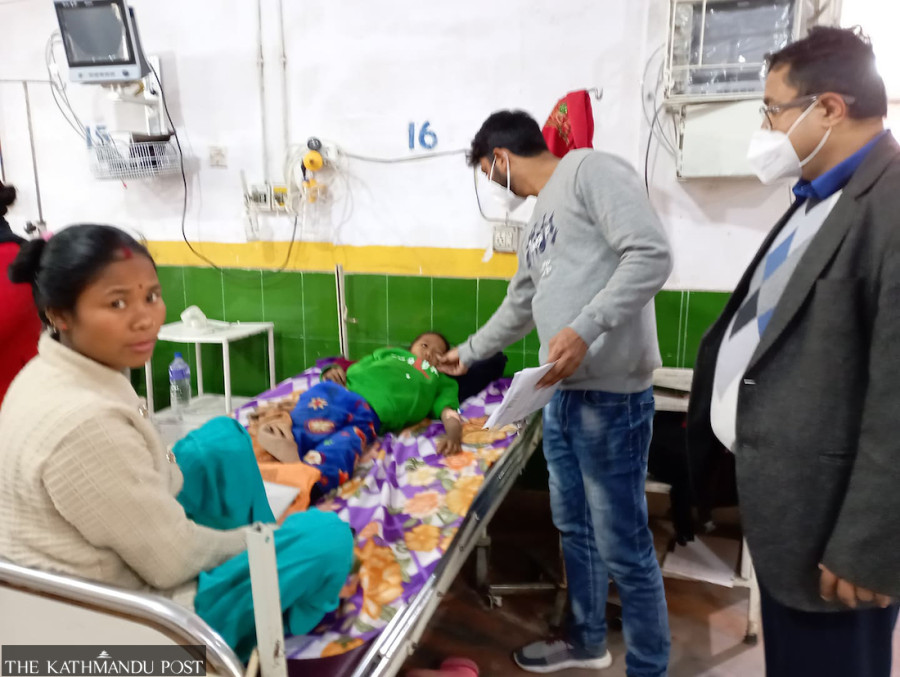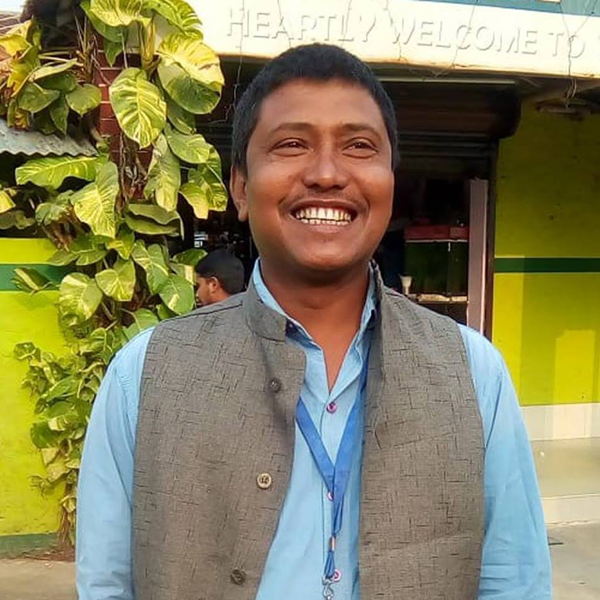Lumbini Province
Families of thalassemia patients under financial strain to afford treatment
Patients of beta thalassemia and their families demand that the government provide them free treatment.
Thakur Singh Tharu
Eleven-year-old Heena Chaudhary, a resident of Madhuwan Municipality-3 in Bardiya district, has been suffering from beta thalassemia for the past two years. Beta thalassemia is an inherited blood disorder in which the body does not produce hemoglobin normally.
Heena’s family takes her to Bheri Hospital in Nepalgunj every month for blood transfusions. Her health condition has not only taken an emotional toll on the family but also drained them financially, says Heena’s mother Roshani.
“We have to take her to the hospital two to three times a month. We spend at least Rs 5,000 on every visit. We have spent thousands of rupees on her treatment in the past few years and we don’t know how long we will be able to afford it,” said Roshani. “She needs at least 3-4 pints of blood every month. We struggle to manage that.”
The Chaudhary couple, who eke out a living as daily wage earners, have two daughters. Heena is the younger one. They say they have spent all their income and savings on the treatment of their daughter and are now financially stretched thin.
Diksha Raule, aged eight, of Babai Rural Municipality-6 in Dang district has also been suffering from beta thalassemia for the past few years. She needs to visit Nepalgunj every month for her treatment, and this has put a tremendous financial strain on the Raule family.
Heena and Diksha are not isolated cases. The families of many beta thalassemia patients, mainly from impoverished families, are suffering from a huge financial burden to afford regular treatment for their loved ones.
The patients of beta thalassemia, according to doctors, need lifelong care that includes regular blood transfusions and medicines. The disease is quite common, like sickle cell anemia, among the Tharu community.
According to Bheri Hospital in Nepalgunj, where laboratory tests to diagnose thalassemia and its treatment are available, around a dozen patients suffering from beta thalassemia visit the hospital for treatment on a daily basis. Beta thalassemia patients from several districts of Lumbini, Karnali and Sudurpaschim provinces visit Bheri Hospital for treatment.
“The families of thalassemia patients have to bear huge costs for treatment and it’s especially difficult for those in the lower income bracket,” said Dr Rajan Pandey, a consultant physician and medical department chief at Bheri Hospital. “Like with sickle cell anemia patients, the government should provide free treatment to beta thalassemia patients as well.”
According to Pandey, beta thalassemia patients need blood transfusion frequently and must take medicines lifelong.
“While a sickle cell anemia patient needs to visit the hospital once every three or four months, a thalassemia patient needs to visit the hospital every month. Some patients of beta thalassemia need blood transfusion twice or thrice in a month,” he said.
Patients of beta thalassemia and their families have been demanding that the government provide them free treatment to ease their financial burden.
“We have to sell our land to treat our daughter. Even that won’t be enough because she needs treatment and medicine throughout her life,” said Roshani. “It will be of great help to families like ours if the government provides free treatment to beta thalassemia patients.”
The federal government had decided to provide free treatment to patients of sickle cell anemia a few years ago after a large number of people from the Tharu community in western Tarai districts were found suffering from the disease. According to the Bheri Hospital administration, around 4,000 sickle cell anemia patients have received free-of-cost treatment at the hospital so far.
Health workers are also of the opinion that the government should manage free-of-cost treatment for thalassemia patients. According to doctors, some patients even need bone marrow transplantation techniques to treat thalassemia but Bheri Hospital does not have this service.
“The patient has to go to Kathmandu for this service, which costs around Rs 1 million,” said Pandey. “Not everybody can afford it, that’s why the government must intervene.”




 22°C Kathmandu
22°C Kathmandu













